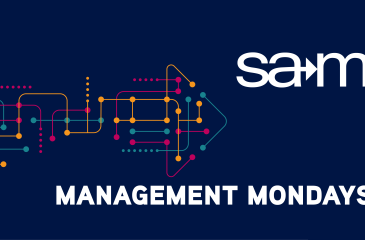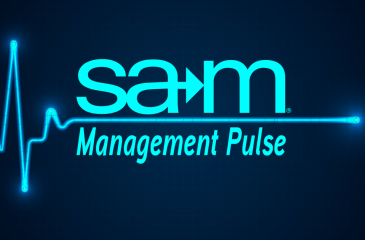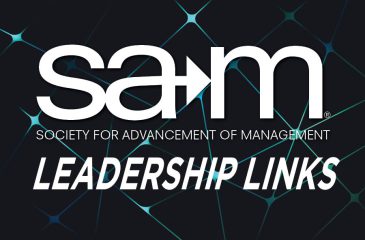Trends
-
Recognition Is Not a Reward: It Is How Leaders Sustain Effort Over Time
Recognition is often treated as a reward given after results are delivered, but high performing teams experience it as a daily leadership practice that sustains effort over time. When leaders consistently acknowledge contribution, judgment, and collaboration, motivation remains strong even during demanding periods. This Management Monday article explores why recognition breaks down when teams are busiest, how appreciation reinforces culture more effectively than policy, and why personal recognition has the greatest impact. Recognition is not extra. It is essential to maintaining trust, engagement, and discretionary effort.
-
Goal Setting Is Not About Targets: It Is About Creating Direction People Can Commit To
Goal setting is often reduced to targets and numbers, but high performing teams experience it as direction and shared commitment. When goals are clear, aligned, and grounded in purpose, teams focus their effort instead of spreading it thin. This Management Monday article explores why alignment matters more than ambition, how purpose strengthens commitment, and why goal setting must remain an ongoing conversation rather than a one time exercise. Effective goals do not just measure progress. They create clarity people can act on.
-
Accountability Is Not Blame: It Is the Discipline That Makes Trust Possible
Accountability is often confused with blame, yet high performing teams experience it as clarity, ownership, and trust. When responsibility is clear and follow through is consistent, teams move faster and collaborate with confidence. This Management Monday article explores how low accountability quietly undermines performance, why ownership must be explicit, and how leaders shape accountability through everyday conversations rather than formal reviews. Accountability is not about pressure. It is about creating the conditions where trust and performance can grow together.
-
Communication Is Not Transmission: It Is the Behavior That Follows the Message
Communication is often treated as information sharing, but high performing teams know it only matters when it shapes understanding and behavior. When leaders pay attention to how messages land, listen with intention, and tailor communication to their audience, alignment improves and confusion fades. This Management Monday article explores why communication is a leadership practice rather than a one time event, how listening drives clarity, and why culture is shaped through everyday conversations. Strong communication is not about saying more. It is about saying what matters in a way people can act on.
-
A Growth Mindset Is Not About Optimism: It Is About Treating Every Outcome as Incomplete
A growth mindset is often mistaken for optimism, but high performing teams treat it as a discipline rather than an attitude. When leaders view outcomes as information instead of final judgments, teams become more adaptable, resilient, and willing to learn. This Management Monday article explores how fixed thinking quietly takes hold, why learning requires intentional space, and how leadership behavior determines whether growth is encouraged or suppressed. A growth mindset is not about getting everything right. It is about improving how teams respond when things do not go as planned.
-
Integrity Is Not a Value Statement: It Is the Choices You Make When It Costs You Something
Integrity is often treated as a value statement, but high performing teams experience it through everyday decisions and behaviors. When leaders make consistent choices, own mistakes, and act with clarity even when it is uncomfortable, trust follows. This Management Monday article explores how integrity quietly shapes team culture, why it erodes long before it fails publicly, and how daily leadership decisions either strengthen or weaken performance. Integrity is not abstract. It is a practical foundation for trust, accountability, and sustained results.
-
Autonomy Is Not Letting Go: It Is Choosing Where Control Actually Matters
Autonomy is often mistaken for a lack of control, when in reality it depends on clarity, trust, and thoughtful leadership. High performing teams are not unmanaged teams. They are teams where people understand expectations, feel trusted to make decisions, and are held accountable for results. This Management Monday article explores why micromanagement undermines performance, how structure enables autonomy, and what leaders must do to balance trust with accountability. The result is faster decision making, stronger ownership, and more resilient teams.
-
Work Ethic Is Not About Working Harder
Work ethic is often mistaken for working longer hours or pushing harder than everyone else. In reality, strong teams are built on reliability, clarity, and shared standards that allow people to trust one another’s contributions. This Management Monday article explores why work ethic is less about effort and more about consistency, values, and leadership behavior. It examines how small lapses ripple through teams, why managers set the ceiling for performance, and how high standards outperform rigid rules. The result is a more sustainable approach to performance that earns trust rather than burnout.
-
Leadership on Loan: How to Be a Trusted Project Leader Without a Title
Not every leader carries a title, and not every project manager has formal authority. In many project environments, leadership is borrowed, not granted. Professionals are asked to guide teams, coordinate stakeholders, and make decisions without the power to hire, fire, or promote. This setup is especially common in matrix organizations or cross-functional initiatives, where accountability is high but traditional control is limited. Leading under these conditions requires more than process knowledge. It demands influence, trust, and credibility. Project professionals must learn how to lead teams without leaning on hierarchy.
-
Soft Skills Are the New Power Skills: Rethinking the Project Manager’s Toolkit
For decades, project managers were measured primarily by their ability to hit deadlines, control budgets, and manage scope. While those technical skills still matter, they are no longer enough. Today’s project environments demand far more than spreadsheets and timelines. They require influence, empathy, collaboration, and strategic thinking. What used to be called “soft skills” are now widely recognized as essential tools for any project leader. These skills are no longer optional or secondary. They form the foundation of team effectiveness and stakeholder engagement.
-
Digital Fluency for Project Professionals: What You Actually Need to Know
In a world where nearly every project involves digital tools, platforms, or data in some form, digital fluency is no longer optional for project professionals. It is essential. But digital fluency does not mean being an IT expert or knowing how to code. It means understanding how digital tools influence decision-making, collaboration, and delivery across every phase of the project lifecycle. For many project managers, the challenge is not the absence of technology but the volume of it. Choosing the right tools, using them effectively, and interpreting their outputs confidently is what sets capable leaders apart from those who get overwhelmed.
-
Innovation Isn’t a Department: How to Lead Project Teams That Actually Think Differently
Innovation has long been treated as something that happens in a specific department or under special circumstances. In many organizations, the task of thinking creatively is assigned to a designated group, often isolated from day-to-day operations. But in today’s fast-paced, interconnected environment, this approach no longer works. Creativity and problem-solving cannot be siloed.
-
How Project Management Drives Real Impact in Social and Humanitarian Work
Project management is often associated with budgets, schedules, and corporate goals. While those applications are important, they represent only part of the profession’s true potential. Across the globe, project managers are quietly leading some of the most critical efforts in humanitarian relief, public health, environmental sustainability, and community development. These initiatives are rarely easy, and the stakes are often higher than any profit margin. In these environments, success can mean restored health, saved lives, and rebuilt communities. Project management provides the structure, coordination, and leadership necessary to achieve those outcomes under pressure. It allows passionate people and skilled professionals to collaborate in meaningful, effective ways.
-
Why Strategy Needs Project Managers Now More Than Ever
For many years, project management was seen as a behind-the-scenes function. It was about hitting milestones, tracking schedules, and delivering results once a strategy had already been set. But today, […]
-
Relationship-Centered Leadership: The Model That Actually Lasts
Leadership is often described in terms of outcomes, such as hitting performance targets or managing change. While results matter, the most enduring form of leadership is built on relationships. The quality of your connections with others determines how much influence you have, how well your team functions, and how resilient your workplace culture becomes over time. Leadership is not just what you accomplish. It is how you relate to others while doing it.
-
Why Stability Beats Charisma: Building Environments People Can Count On
In many workplaces, charismatic leaders often get the spotlight. Their energy, bold vision, and persuasive communication style can draw attention and inspire action. While charisma can be useful in certain […]
-
CarMax CEO Transition: Turning Leadership Change into Strategic Renewal
CarMax’s announcement that CEO Bill Nash will step down marks more than a change in leadership. It represents a deliberate opportunity for renewal. By appointing board member David McCreight as interim CEO, the company signaled a commitment to stability, transparency, and strategic reset. For managers, this transition illustrates how leadership changes can serve as moments to refocus strategy, refresh culture, and strengthen stakeholder confidence.
-
Leadership Links #22
This week’s Leadership Links tracks five moves that turn strategy into results. Diageo names Dave Lewis to sharpen brand focus, Newmont details integration after its Newcrest deal, MongoDB signals product speed with a planned handoff, Honeywell’s aerospace spinout picks an insider to set Day One pace, and Britannia maps a steady path through a leadership change.
-
Loyalty Without Blindness: How to Stay Committed While Staying Honest
Loyalty has long been viewed as a virtue in the workplace. Employees who are considered loyal are often praised for their commitment and reliability. However, today’s work environments are fast-moving and constantly evolving. As a result, loyalty cannot mean what it used to. It should no longer be defined by blind allegiance or staying in place no matter the circumstances. Loyalty now involves mutual respect, honesty, and a shared commitment to the greater mission. It must be redefined as active engagement rather than passive agreement.
-
Margin Pressure and Management Discipline: Lessons from Waste Management’s Third Quarter
The latest results from Waste Management, Inc. reveal a challenge that many organizations face today: strong revenue growth paired with shrinking margins. The company reported revenue of approximately 6.44 billion […]
-
Leadership Links #21
This week’s edition looks at leadership choices that balance growth ambition with execution discipline. A semiconductor firm times a CEO transition at a profitability inflection. A health sciences chairman calls for renewed, values led engagement. A fast growing restaurant brand brings outside firepower to its board. A global risk advisor elevates a regional chief to match opportunity with local fluency. A specialty pharma company appoints a biotech veteran to scale innovation and partnerships.
-
Leading Across Silos: Building Coalitions That Actually Work
In many organizations, the biggest obstacles to progress are not technical or strategic. They are relational. Silos form naturally when teams become focused on their own goals, processes, and language. While specialization has its advantages, it often leads to missed opportunities, duplicated efforts, and miscommunication. The leaders who succeed in these environments are those who know how to build coalitions, not just manage tasks.
-
Corporate Culture Messaging in Times of Political Change
In an increasingly interconnected and polarized world, corporate culture does not exist in isolation. It sits at the intersection of leadership, stakeholder perception, and broader political realities. A recent study from the University of New Mexico has added empirical weight to what many executives already sense intuitively: when national leadership or political orientation changes, organizations often shift how they describe and project their internal culture. These shifts are visible in earnings calls, public statements, and marketing language, reflecting how organizations attempt to navigate changes in the broader political and social environment.
-
Leadership Links #20
This week’s edition looks at how leadership adapts culture, continuity, and strategy in changing environments. A new academic study shows corporate culture messaging shifts with national politics. A real estate CEO’s temporary medical leave puts succession and operating rhythm to the test. Fresh board appointments signal strategy in motion. Sector outlooks remind leaders that risk and business model design are converging. Even publishing tech events now point to rapid reinvention of customer experience.
-
Trust Is Built in the Small Moments: How to Lead with Consistency
Trust is one of the most important currencies in the workplace, yet it is often misunderstood. People tend to equate trust with honesty, assuming that as long as they tell the truth, trust will follow. While honesty is essential, it is only one part of the equation. Trust also involves dependability, discretion, empathy, and how well you follow through on what you say. These qualities are shaped not by big promises, but by the repeated behaviors that others observe over time.



